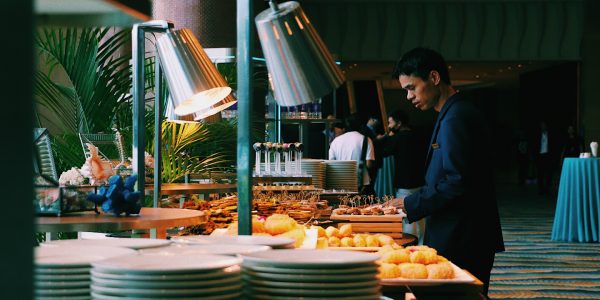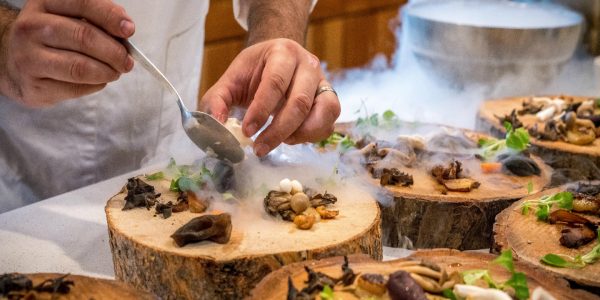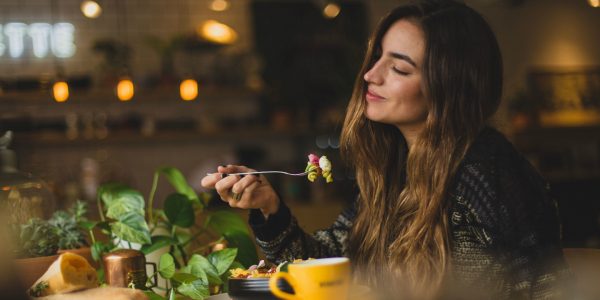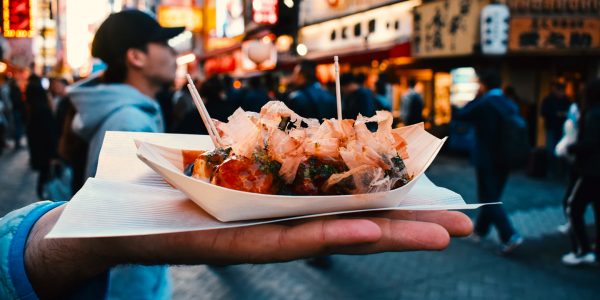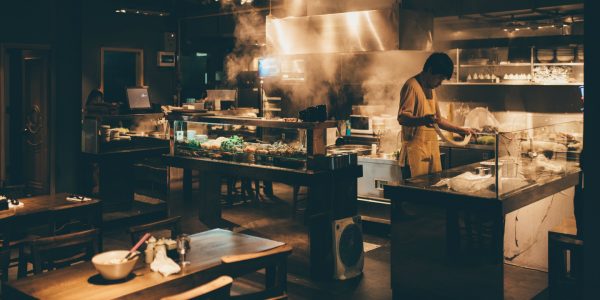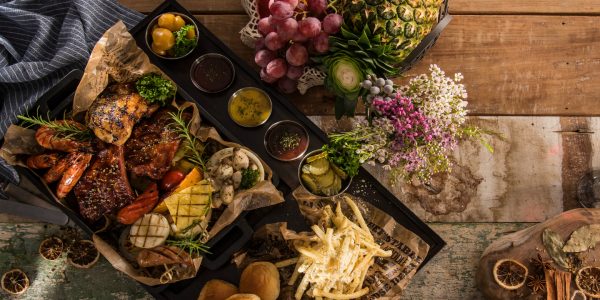Words, as such, cannot describe him, at least not words as simple as these.
Anthony Bourdain — passionate foodie, opinionated explorer, humorous and sardonic storyteller, and connoisseur of human connection would be more fitting; and still lacking the nuance Bourdain produced every moment in his writing, onscreen, and in the kitchen.
Fittingly, it was during a flight to a country previously unknown to me that I first encountered the dulcet tones of Anthony Bourdain. Two episodes into Parts Unknown, I was catapulted into a world of intrigue, inspired by his unwavering willingness to discover the dark underbelly of lesser understood corners of the planet.
I was fascinated with Bourdain himself, an enigma, an inspiration, a man who saw, heard, and somewhat understood the true meaning of human nature and the world around him. He found a way to connect with people — in most circumstances through the stomach. He appreciates a good dish as much, if not more than, the experiences he has in these broadly varying countries. Bourdain made it his mission of sorts to uncover a world mostly unknown, rarely seen, and infinitely misunderstood. To him, the world was a list of interesting, challenging, heartbreaking, inspiring, and beautiful places.
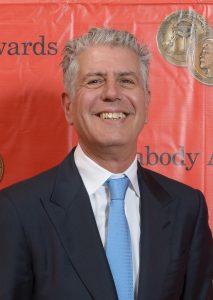
Tragedy strikes
So it came as a shock to many when he was found to have committed suicide part way through filming on location for his ongoing series Parts Unknown. It would be in France that Anthony Bourdain would see his last days. A country where his family had roots, the place where he had tasted the first oyster that sparked a whirlwind journey of life in the fast lane of travel and food.
He kept a gruelling schedule while filming, and was said to be visibly exhausted, regularly retreating to his room after intense shoots.
Knowing his penchant for a good meal, the signs weren’t good when Bourdain never turned up for a rustic French dinner while on location in Kaysersberg, France. The crew waited and waited, but he failed to turn up again at breakfast. His good friend Eric Ripert was waiting downstairs in the restaurant to try local bread, cheeses, and pastries, but again the wait was in vain.
It was Ripert who found his friend in the hotel room, unlocked by a receptionist. Bourdain was unresponsive, having hanged himself in his bathroom. The news came as a shock to all those who knew him, loved him, and revered his strong spirit. Family, friends, and the thousands he inspired to follow in his footsteps on the path of their own dreams would lament the loss of a legend. He was 61.
Here are 20 reasons we will always love the great Anthony Bourdain.

1. His humble origins
Bourdain had humble origins in New Jersey, raised on hamburgers and meatloaf and other standard American family-friendly foods. far from the curated tastes of his later years — beluga caviar and bootleg sake from Japan.
He remembered a copy of Julia Child’s Mastering the Art of French Cooking sitting on top of the refrigerator. In an interview with Time Magazine, he spoke of Julia’s influence on his childhood palate. “When you watched Julia Child, you would see her make coq au vin or some classic French dish, and say ‘Wow, that’s not so difficult. If Julia could do it, I’m going to try that’”.Bourdain spent many a summer in his younger years in France with his family. As an act of rebellion after being left out of dinner parties, he began to request more obscure foods in order to spark a reaction. Introduced to the culinary delights of French cuisine, this is where he first discovered his passion for food and cooking.
At the age of 9, on his first foray into France, he encountered vichyssoise, a chilled soup of potatoes, leeks, and cream, and would try his first fresh oyster. In his book
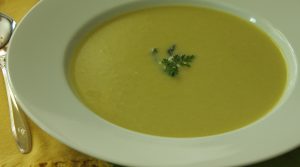
2. His first job was as a dishwasher
His first job was as a dishwasher in a restaurant in Provincetown in Cape Cod, mirroring a character from one of his favourite works of literature — George Orwell’s Down And Out In Paris And London. Bourdain said it had a profound effect on him, and he learnt every important lesson in life while being a dishwasher and a cook.
The restaurant life is a very organised, efficient, team-led way of life, and it created a sense of order in the chaos of his young life. He said had he not become a dishwasher, “I would have spiralled into petty crime, loserville; I wouldn’t have made it out of my twenties”.
He carried on his education at the Culinary Institute of America, to learn the art of traditional cooking that would now seem a mystery to millennials. Dishes such as shrimp cocktail, beef tartare, and caesar salad were the norm — n anachronistic example of eating habits in the ’70s. He went on to become the executive chef at Brasserie Les Halles in New York.
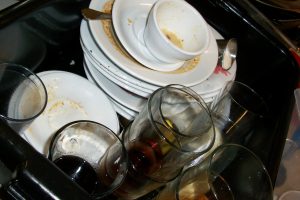
3. He beat drug addiction
It’s no secret that Bourdain had a lengthy struggle with drugs.
Bourdain spent two years at Vassar College before he dropped out, languishing under a long-term addiction to cocaine and heroin. He spoke of his struggle at length
In the book, he mentions the many narcotic ingredients he kept in his own pantry. “Pot, quaaludes, cocaine, LSD, psilocybin, mushrooms soaked in honey and used to sweeten tea, Seconal, Tuinal, speed, codeine and increasingly, heroin, which we’d send a Spanish-speaking busboy over to Alphabet City to get”. He spoke of his addiction as preparing him for a life as a celebrity. Being in the dark underworld of heroin addiction introduces you to a lot of hustlers, and it’s easier to spot people trying to make a quick buck out of you when you become a person of influence.
He finally quit drugs completely before his daughter Ariana was born in 2007, and was never tempted to relapse.

4. But he remained a connoisseur of alcohol
Unlike many addicts in remission, he didn’t turn his back on alcohol and can be seen enjoying a tipple in many episodes of Parts Unknown. He wrote, ”Most people who kick heroin and cocaine have to give up on everything. Maybe ‘cause my experiences were so awful in the end, I’ve never been tempted to relapse”.
He can regularly be seen on the series sipping negronis in Italy, knocking back rum with locals in Trinidad, and soju in South Korea. But he admitted the place he always ends up drinking the most is unsurprisingly Russia, a country famous for its mass intake of vodka for breakfast, lunch, and dinner. Bourdain told
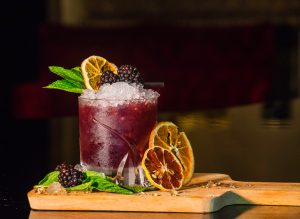
5. He almost never got his big break
When his first book, Kitchen Confidential was published, it soared to the top of the New York Best Seller list and catapulted him to fame. It originally started with a short piece inspired by George Orwell that he had originally intended for the New York Press. After the piece went unpublished, he drunkenly sent it out to the New Yorker on pure whim. He said in I’m taking the piece back’. And I stuffed it into an envelope and sent it to The New Yorker, period… But I guess about a month and a half later, I was working at [Brasserie] Les Halles, and the phone rang, and it’s David Remnick. And the rest was literally immediate — the day after that article came out, I had a book deal”.
It was the piece in the New Yorker that got the ball rolling. When
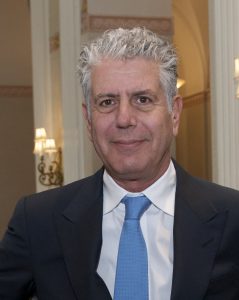
6. He didn’t see commercial success until his 40’s
At the age of 44, he was still facing immense debt, had no health insurance, and couldn’t pay the rent. He was slaving away in the restaurant industry and wondering how he could ever drag himself from the terror of an unfulfilling life that seemed to have no end. It was the release of his book that turned it all around, and he would go on to earn the title of ‘celebrity chef’ before travelling the world to discover many gastronomic delights.
He described the transition in the Myanmar episode of Parts Unknown as, “Broke-ass utility chef to whatever it is I am today”.
He humbly remembered his roots and was abundantly appreciative of the way his life had changed significantly since becoming a leading industry figure. In an interview with
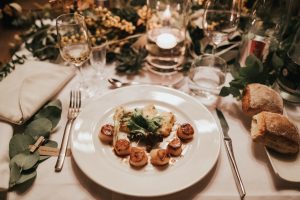
7. In a past life, he wrote crime fiction
Given his journeys through some of the darker corners of the world and his knack for turning his experiences into elegant prose, Bourdain’s love of words has always been clear. It’s not too surprising to learn that he had an early penchant for writing gritty fiction. It seemed writing was his first passion, and A Bone in the Throat, the story of a chef who gets mixed up in Italy’s criminal underworld burns with wit, mayhem, and the mob. His three novels, including Gone Bamboo and The Bobby Gold Stories didn’t achieve critical acclaim until after he was famous for other reasons. Nonetheless, they subsequently received great reviews.

8. He loved comfort food
When asked about his comfort foods on his Reddi IAmA, he offered up a slew of slightly unexpected guilty pleasures. “I have an unholy and guilty attraction to fast-food macaroni and cheese. During the morning I get these horrendous cravings for Popeye’s mac and cheese, and, uh, I will often disguise myself to try to slip into Popeyes. Or in a pinch, I will even go to the Colonel. There, I admit it. And I’m always recognized”. He admitted that whenever he was in an airport and there was a Popeye’s, he would make a bee-line for it as soon as he stepped off the plane.
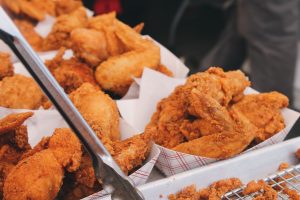
9. His love of cocktails
Bourdain was a big drinker, regularly pairing a dish with the perfect wine, or tasting the signature drink of whichever country or province he was dining in. Speaking at the 4th Annual American Craft Council Fellowship Awards, he revealed his favourite drink of all time — the Negroni.
A punchy Italian cocktail with equal parts gin, vermouth, and Campari, served on the rocks and garnished with a fresh orange peel. “A Negroni is a perfect drink as far as I’m concerned,” said Bourdain, adding, “It’s three liquors that I’m not particularly interested in… But put them together with a slice of orange. It works… That first sip is confusing and not particularly pleasant. But man it grows on you”.
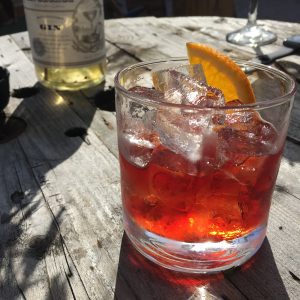
10. His friendship with Éric Ripert
Bourdain was very close to Michelin-starred chef, author, and television personality Éric Ripert. Ripert had read Kitchen Confidential and called Bourdain immediately afterward. They became the best of friends and would embark on many travel adventures together.
Bourdain part-owned a bespoke chocolate business with Ripert where they sourced the rarest cocoa in the world from a farm in Peru.
It was Ripert who found Bourdain in his hotel room. Ripert later tweeted, “Anthony was my best friend. An exceptional human being, so inspiring & generous. One of the great storytellers who connected with so many. I pray he is at peace from the bottom of my heart. My love & prayers are also with his family, friends and loved ones”.
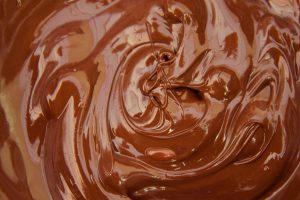
11. Good & Evil chocolate
Together, Bourdain and Ripert pioneered a premium chocolate bar business made with the rarest cocoa beans in the world. The search was documented by the pair in the Peru episode of Post bean foray, Bourdain made an anonymous contribution to aid the livelihoods of the farmers on the Peruvian cocoa farms.
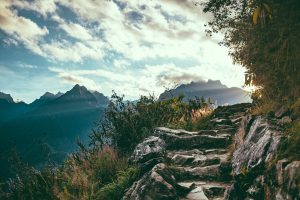
12. He had a great trick for finding the best restaurants
When it came to finding the best food in town, Bourdain had a trick: Read fiction about a place rather than the guidebooks, you’re more likely to discover the subtle nuances of a place and local secrets.
In an interview with Esquire he said, “On the plane, I like to read fiction set in the location I’m going to. Fiction is in many ways more useful than a guidebook because it gives you those little details, a sense of the way a place smells, an emotional sense of the place. So, I’ll bring Graham Greene’s
The second suggestion was trolling the internet. “The other great way to figure out where to eat in a new city is to provoke nerd fury online. Go to a number of foodie websites with discussion boards. Let’s say you’re going to Kuala Lumpur — just post on the Malaysia board that you recently returned and had the best rendang in the universe, and give the name of a place, and all these annoying foodies will bombard you with angry replies about how the place is bull****, and give you a better place to go”.
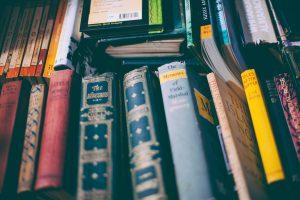
13. He hated aeroplane food with a passion
“There’s almost never a good reason to eat on a plane. You’ll never feel better after aeroplane food than before it. I don’t understand people who will accept every single meal on a long flight. I’m convinced it’s about breaking up the boredom. You’re much better off avoiding it. Much better to show up in a new place and be hungry and eat at even a little street stall than arrive gassy and bloated, full, flatulent, hungover. So I just avoid aeroplane food. It’s in no way helpful”.
“In Tokyo, I’ll get ramen, in Singapore I’ll get something from the airport’s hawker center. Shake Shack at Kennedy airport is the best, although airport food options in the States are usually really bad”.
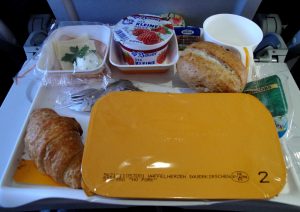
14. He was weirdly terrified of Switzerland
Filming amidst conflict and unrest in a country was almost a pastime for Bourdain. Asked on
There was one country he refused to film on grounds of being terrified, but surprisingly it was a different kind of irrational fear. Switzerland is famously known for being neutral in all things. But Bourdain admitted he was irrationally terrified of the place. In an interview with

15. Parts Unknown
From 2013-2018, Bourdain filmed over 100 episodes of Parts Unknown.
While making my way through the many installments, I can’t help but be captivated by Bourdain’s dark charm, and his unwavering passion for delectable cuisine. Ultimately, everything takes a back seat to the food he encounters: the ways in which recipes come to life, the piety with which they are passed down through generations, the zest and enthusiasm with which they are savored.
Parts Unknown is a gateway into rediscovering war-torn worlds, the mass of people at the heart of them that fought and strived to hold on to their future. In Bourdain’s eyes, and rightly so, a country was always more reasonably defined by the hearts of the many, rather than the ideals of the few.
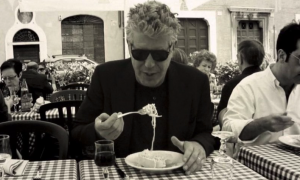
16. He worked unscripted
Parts Unknown is essentially raw. The team tried to frame the experiences as candidly as possible and show everything; even humiliations make it onto the show, such as Bourdain’s embarrassment at being kissed full on the mouth by a ladyboy in Thailand.
There was no script, the conversations were not pre-planned. Bourdain stated on Reddit, “I’m very lucky in that I get paid to really be myself; I don’t have a script. I decide where we go and what we do on the show”.
He also spoke of the nature of the programme and how he and his team were always cautious in showing a country and the locals they met from a particular angle, especially in some of the countries with controversial politics. “I can go around and come back and say anything I want about the place; but all of the people who are nice to me there, I have to think about the repercussions of my comments here. And we’re very careful about that as well. I can say what I want, but I have to think about the people who were kind to me and trusted me in countries that take a dim view of free speech, let’s put it that way”.
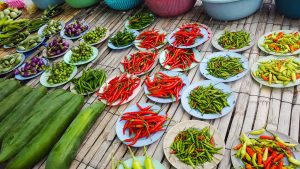
17. He kept certain places secret
Filming Parts Unknown, Bourdain always seemed to be in the ideal little bar that reflected the culture of a place perfectly, or the food joint that made the best version of a dish in the whole country. Naturally, people wanted to discover these hidden gems, but it was something of a double-edged sword. Sometimes it would boost local businesses and bring them much-needed revenue. Other times it would destroy the soul of a place and the locals would flee as tourists arrived in droves.
Some places are just so unique, so ultra special that they should not be destroyed by the media. Those places he keeps secret, changing the names or not mentioning anything about the location at all. Speaking to Dave Davies on Fresh Air he said: “There are times that I have looked at the camera and said, look, I’m just not going to tell you where this place is. I don’t want to change it. It should stay like this forever. I do do that now and again”.
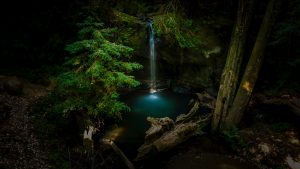
18. He made a documentary called Wasted
In 2017, Bourdain released the documentary along with his Parts Unknown producers Zero Point Zero. Wasted is a feature-length documentary about food waste that aims to change how people buy, cook, and eat food. Culinary heroes Dan Barber, Mario Batali, Massimo Bottura, and Danny Bowien join Bourdain to inspire people to create a more sustainable food system in our everyday lives. Dealt with deliciously and efficiently, food waste should be a thing of the past. If each of us made a small change, it could help solve one of the biggest problems facing the Earth today.
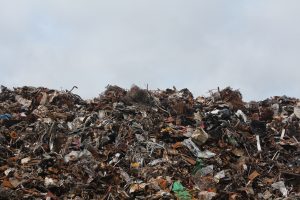
19. He would try anything once
Describing himself as ever the optimist, Bourdain remained undaunted no matter what dish was presented to him, courageously trying anything and everything with obvious relish during filming.
He’s tried balut (duck embryo) in Vietnam, rotten shark in Iceland, maggot fried rice with Piers Morgan, raw seal eyeball in Quebec, and even a live cobra heart still beating in his hand.
He described the macabre experience to David Letterman on The Late Show. “It was in Vietnam. It’s a table side dish and they bring the cobra by and let him kind of strike at you or hiss and then they zip it open with a pair of gardening shears,. “The little heart drops onto a plate and you eat it. It is, in fact, beating all the way down”.
When offered the unwashed rectum of a warthog with a tribe in Namibia, he said on Fresh Air: ‘“When somebody’s offering you food, they’re telling you a story. They’re telling you what they like, who they are. Presumably, it’s a proud reflection of their culture, their history, often a very tough history. You turn your nose up at that important moment, the whole relationship changes, and it will never be the same”’.
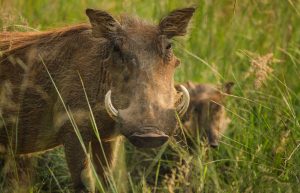
20. He wasn’t afraid of anything
Far from squeamish, Bourdain has eaten his fair share of strange stuff. In France, he tried the banned delicacy ortolan. An ortolan is a tiny songbird that was once common in France. Consuming the bird was outlawed in 1999 due to falling numbers in the species and the cruel method of capture.
But controversial tastings still existed in France, effectively performed under the table in certain restaurants. The act of devouring the bird is quite gruesome, and as such the consumer usually wears a large cotton napkin over their head to shield the act from view. From there, the prepared bird is taken whole into the mouth and eaten. Anthony described the experience in his book, Medium Raw.
“With every bite, as the thin bones and layers of fat, meat, skin, and organs compact in on themselves, there are sublime dribbles of varied and wondrous ancient flavors: figs, Armagnac, dark flesh slightly infused with the salty taste of my own blood as my mouth is pricked by the sharp bones. As I swallow, I draw in the head and beak, which, until now, have been hanging from my lips, and blithely crush the skull”.
Words of wisdom
We end on some lofty advice from the man himself.
“Be open to experience, be willing to try new things, don’t have a rigid plan. Accept random acts of hospitality without judgement or fear. Don’t be afraid to wander, don’t be afraid to eat a bad meal, if you don’t risk the bad meal you’ll never get the magical one. And I think the most important. Be humble, be grateful, be aware of the fact that you’re probably the stupidest person in the room”.
Also, “never fry bacon while naked”.
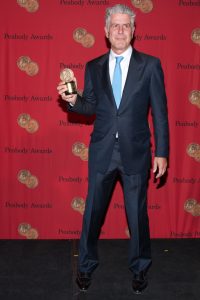
Bourdain lived as he ate; boldly, indulgently, and without judgement — a true prince of gastronomy, and an icon in the world of travel. The loss of Anthony Bourdain will truly be felt by those left behind who will forever be inspired by his legacy.
Watch the full interview here.
A documentary of Anthony Bourdain’s life is currently in the works.

